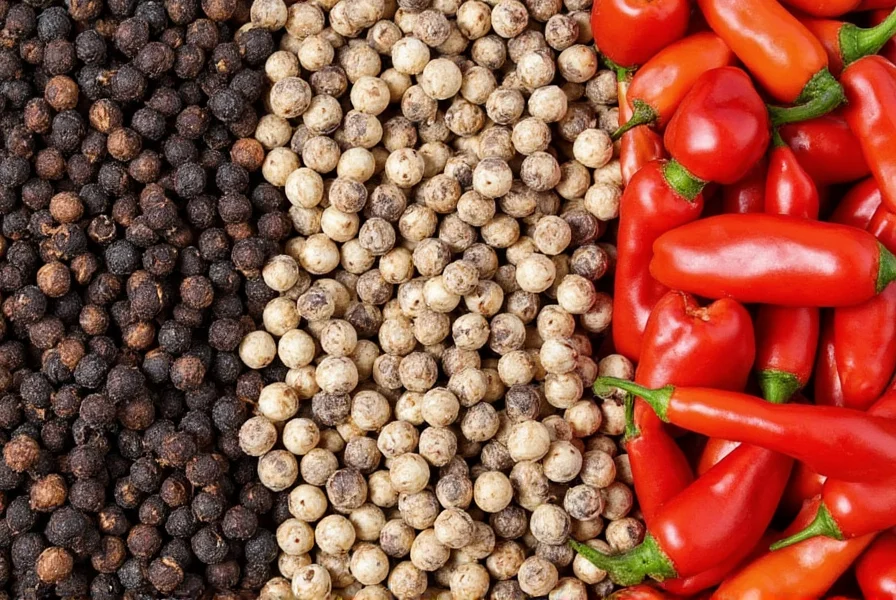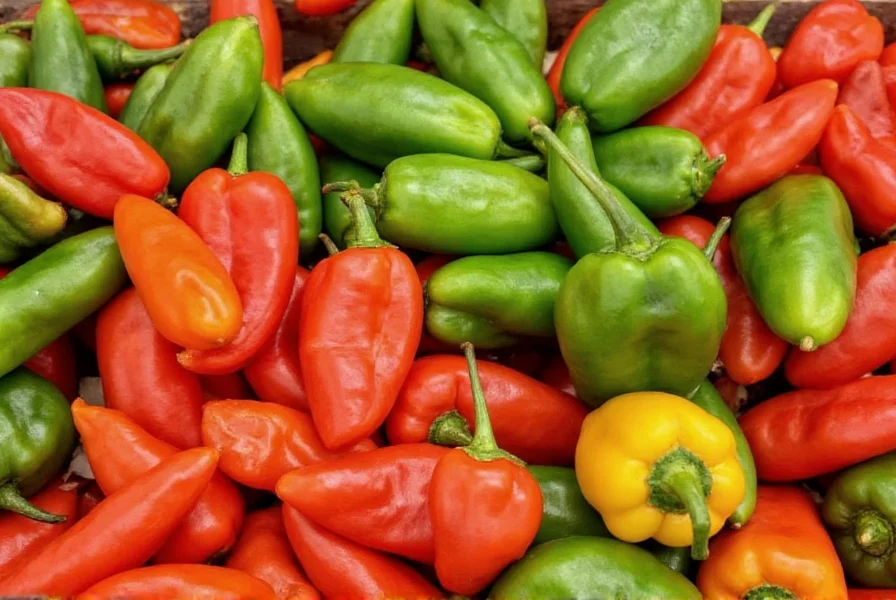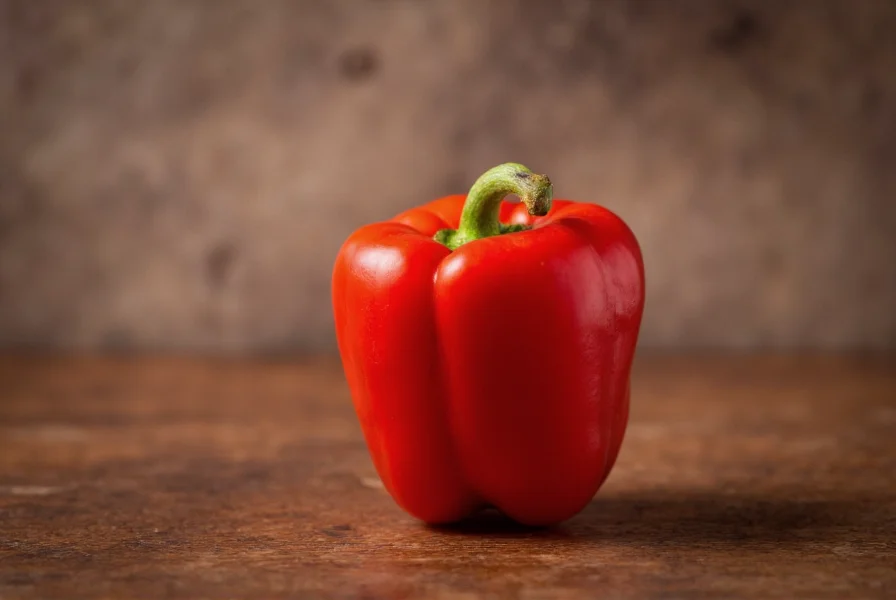Understanding why pepper tastes bad to certain individuals involves exploring the complex relationship between our genetics, sensory perception, and the chemical compounds in different pepper varieties. This common experience isn't simply a matter of preference—it's rooted in biological factors that affect how we process flavors.
The Science Behind Pepper Taste Perception
Peppers contain specific compounds that trigger particular reactions in our taste receptors. Black pepper contains piperine, while chili peppers contain capsaicinoids, primarily capsaicin. These compounds activate the TRPV1 receptor, which is responsible for sensing heat and pain. For some individuals, this activation creates an unpleasant burning sensation rather than the pleasant warmth others experience.
Genetic differences play a significant role in how we perceive pepper flavors. The TAS2R38 gene influences our sensitivity to bitter compounds. People with certain variants of this gene (often called 'supertasters') have more taste buds and heightened sensitivity to bitter flavors, making black pepper taste excessively bitter or medicinal.

Types of Peppers and Their Flavor Profiles
Not all peppers affect taste perception equally. The 'yucky' sensation varies significantly depending on pepper type:
| Pepper Type | Primary Compound | Common Taste Complaints | Recommended For Sensitive Palates |
|---|---|---|---|
| Black Pepper | Piperine | Bitter, medicinal, overwhelming | Use sparingly; try white pepper instead |
| Cayenne | Capsaicin | Burning sensation, harsh aftertaste | Substitute with smoked paprika |
| Jalapeño | Capsaicin (lower concentration) | Grassy bitterness, lingering heat | Remove seeds and membranes |
| White Pepper | Piperine (milder) | Earthy, musty notes | Often better tolerated than black pepper |
Why Children Often Find Pepper Yucky
Children frequently reject pepper due to their naturally heightened taste sensitivity. Young palates have more taste buds than adults, making them more sensitive to strong flavors. This evolutionary trait likely developed to protect children from potentially harmful substances. As children mature, many develop a greater tolerance for pepper's pungency, though genetic factors mean some never fully adapt.
When 'Yucky' Pepper Might Indicate Spoilage
While genetic factors explain most cases of disliking pepper, sometimes 'yucky' pepper indicates actual spoilage. Fresh black pepper should have a sharp, woody aroma with citrus notes. If your pepper tastes musty, moldy, or significantly different from its usual flavor, it may have absorbed moisture or gone stale. Properly stored in an airtight container away from light, whole peppercorns maintain freshness for 2-3 years, while ground pepper lasts 6-12 months.

Adapting Recipes for Pepper Sensitivity
If you find pepper consistently unpleasant but want to enjoy dishes that traditionally use it, consider these adjustments:
- Substitute with milder alternatives: White pepper often provides similar flavor without the bitter notes that bother sensitive palates
- Cooking techniques: Adding pepper late in the cooking process reduces its intensity
- Pairing strategies: Combining pepper with fats (like olive oil or butter) can mellow its harshness
- Gradual exposure: Small, consistent amounts can help desensitize taste receptors over time
Understanding Individual Taste Differences
The experience of finding pepper 'yucky' is perfectly normal and reflects the diversity of human taste perception. Research shows that approximately 25% of people are supertasters with heightened sensitivity to bitter compounds. This genetic variation explains why some people love pepper while others find it overwhelmingly unpleasant. Rather than viewing this as a deficiency, it's simply part of our biological diversity in taste perception.
Frequently Asked Questions
Why does black pepper taste bitter to me but not others?
Bitter sensitivity to black pepper is largely genetic. People with certain variants of the TAS2R38 gene have more taste buds and heightened sensitivity to piperine (the compound in black pepper), making it taste excessively bitter. Approximately 25% of the population are 'supertasters' who experience this heightened sensitivity to bitter compounds.
Can I train myself to like pepper if I find it yucky?
Yes, gradual exposure can help desensitize your taste receptors. Start with very small amounts of milder pepper varieties like white pepper, paired with fats that reduce pungency. Consistent, minimal exposure over weeks can help your palate adjust. However, if you have strong genetic sensitivity, you may never fully enjoy pepper but can learn to tolerate it in small quantities.
Is it normal for children to hate the taste of pepper?
Yes, it's very common for children to dislike pepper. Children have more taste buds than adults, making them naturally more sensitive to strong flavors like pepper. This heightened sensitivity serves as a protective mechanism. Most children gradually develop greater tolerance as they age, though genetic factors mean some maintain their sensitivity into adulthood.
What are good alternatives to black pepper for people who find it yucky?
White pepper often provides similar flavor without the bitter notes that bother sensitive palates. Other alternatives include celery seed, coriander, or allspice for savory dishes. For heat without bitterness, smoked paprika offers depth without the harshness of chili peppers. Fresh herbs like thyme or rosemary can also provide complexity without the pepper flavor that some find unpleasant.
Does finding pepper yucky mean I have a medical condition?
No, disliking pepper is typically due to normal genetic variations in taste perception rather than a medical condition. However, if your taste perception changes suddenly or you develop new aversions to multiple foods, consult a healthcare provider as this could indicate an underlying issue. For most people, finding pepper 'yucky' simply reflects natural variation in how our taste receptors respond to piperine and capsaicin compounds.











 浙公网安备
33010002000092号
浙公网安备
33010002000092号 浙B2-20120091-4
浙B2-20120091-4